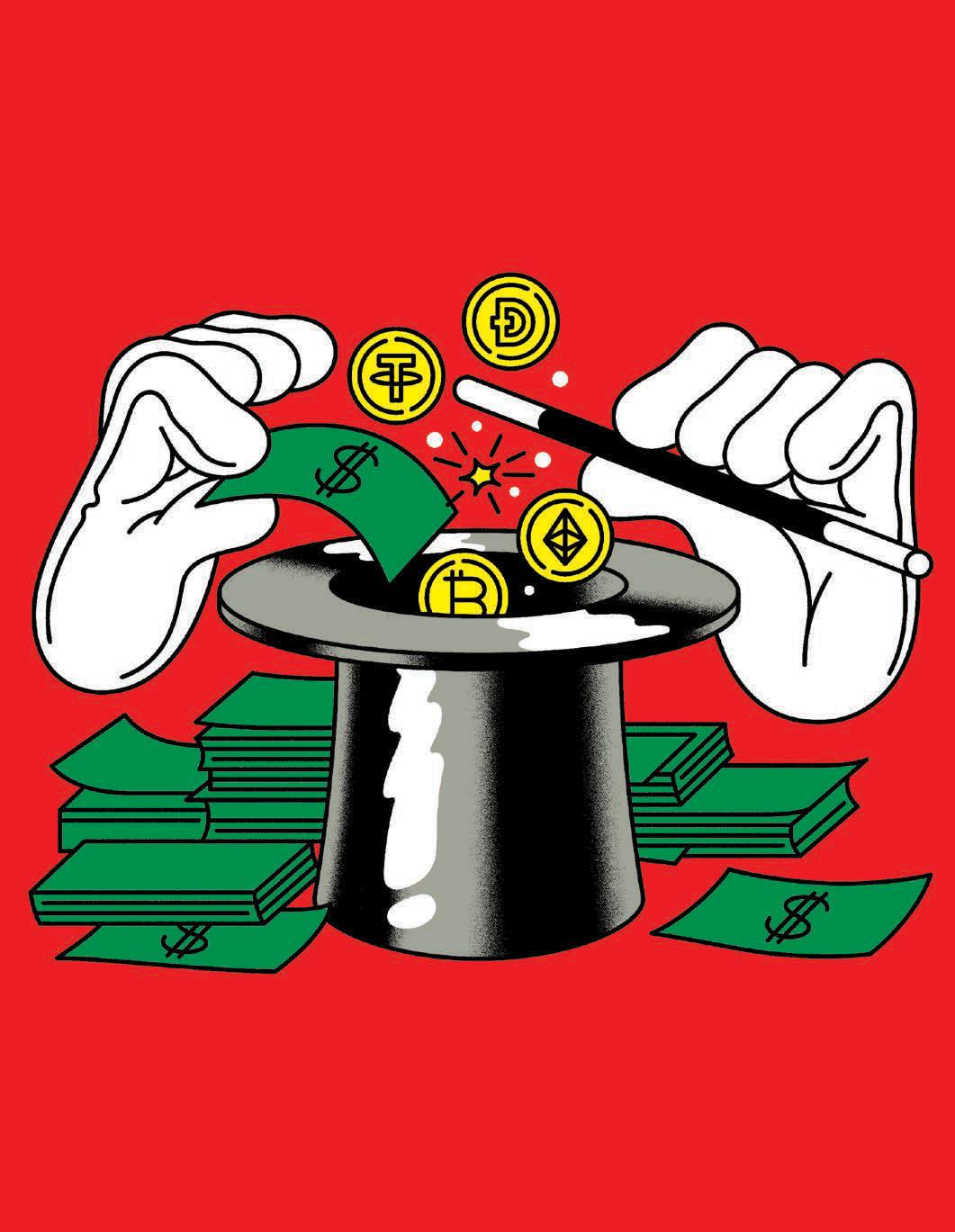
It was a $2 trillion wipeout, or so they say. The still-unfolding crypto winter, which leveled an entire blockchain’s eco system, a large hedge fund, a couple of crypto lenders, and an untold number of retail investors, sent crypto’s total market capitalization plummeting to about $1 trillion, from roughly $3 trillion at its peak in November.
Seeing that number made me wonder if market cap—which is just the number of tokens multiplied by each one’s latest price— is a good way to measure the overall size of the industry. Also, given that a vast number of coins have simply vanished and that plenty of projects produced worthless tokens, does market cap really tell us anything about crypto’s economic value?
Central to the market-cap conundrum is that some users sell crypto assets to themselves over and over—this is called “wash trading”—creating the illusion that money changes hands and items are worth more than they actually are. Melania Trump made news earlier this year when it was reported that the winning bid for her first nonfungible token, or NFT, a photo of her wearing a white suit during a 2018 state visit to France, appeared to have come from the former first lady’s own crypto wallet.
So how much of that $3 trillion pile at the height of crypto last year was actually … cash? Could it be that the last crypto boom never even happened? The question of just how big the ecosystem became matters for a number of reasons, not least of which is that a ton of retail investors plunged into crypto thinking it must be safe, since so many others had made money doing so.
This story is from the {{IssueName}} edition of {{MagazineName}}.
Start your 7-day Magzter GOLD free trial to access thousands of curated premium stories, and 9,000+ magazines and newspapers.
Already a subscriber ? Sign In
This story is from the {{IssueName}} edition of {{MagazineName}}.
Start your 7-day Magzter GOLD free trial to access thousands of curated premium stories, and 9,000+ magazines and newspapers.
Already a subscriber? Sign In

Instagram's Founders Say It's Time for a New Social App
The rise of AI and the fall of Twitter could create opportunities for upstarts

Running in Circles
A subscription running shoe program aims to fight footwear waste

What I Learned Working at a Hawaiien Mega-Resort
Nine wild secrets from the staff at Turtle Bay, who have to manage everyone from haughty honeymooners to go-go-dancing golfers.

How Noma Will Blossom In Kyoto
The best restaurant in the world just began its second pop-up in Japan. Here's what's cooking

The Last-Mover Problem
A startup called Sennder is trying to bring an extremely tech-resistant industry into the age of apps

Tick Tock, TikTok
The US thinks the Chinese-owned social media app is a major national security risk. TikTok is running out of ways to avoid a ban

Cleaner Clothing Dye, Made From Bacteria
A UK company produces colors with less water than conventional methods and no toxic chemicals

Pumping Heat in Hamburg
The German port city plans to store hot water underground and bring it up to heat homes in the winter

Sustainability: Calamari's Climate Edge
Squid's ability to flourish in warmer waters makes it fitting for a diet for the changing environment

New Money, New Problems
In Naples, an influx of wealthy is displacing out-of-towners lower-income workers